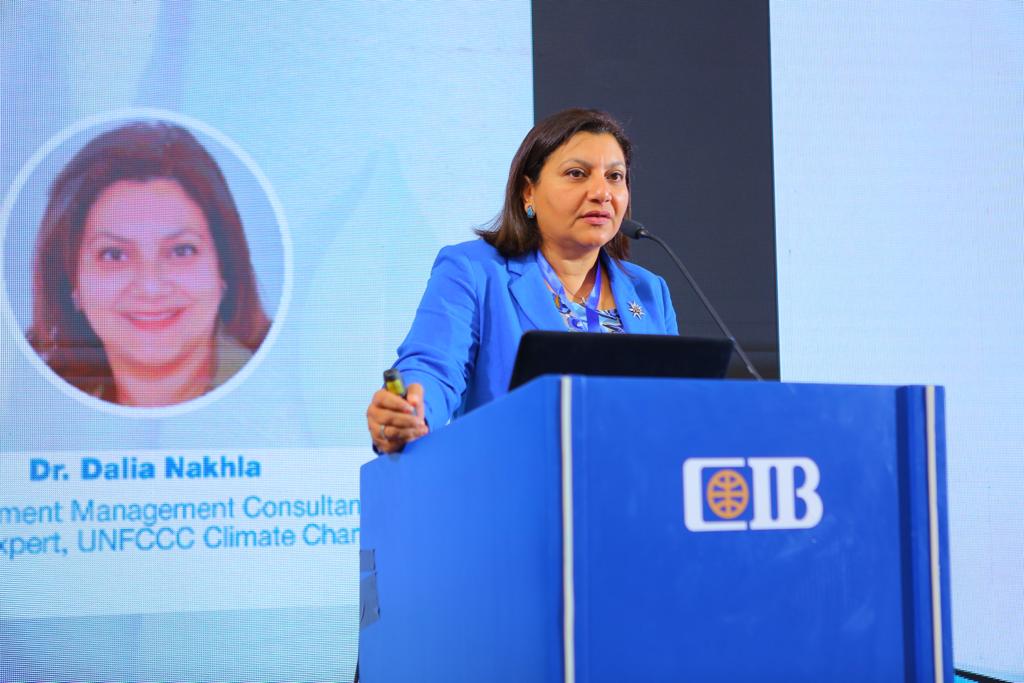
UNEP chief: Nearly 3 bn people face water scarcity.. Over 90% of disasters are water-related
Nearly three billion people face water scarcity. Over 90 percent of disasters are water-related, including ...

Dr Dalia Nakhla, the Environment Management Consultant and UNIDO EnMs Expert, called for “designing for the environment” in the textiles industry so that the products would be eco-friendly and recyclable.
She made the remarks during the Third CIB’s Sustaining Sectors Workshop for Egypt’s Textile Leaders.
The textiles industry is like any industry having an interaction with the environment, she said, referring to the gas emissions of this industry that affect the environment.
It does not only have carbon or water footprint in the manufacturing stage, however, its impact starts in the early stage. It starts in the raw material as each kind of these textiles has its impact on the environment, she added.
Nakhla explained for example that cotton has many impacts on the environment because it needs fertilizers which also have massive impact on the environment.
She also expounded the impact of the washing process on the environment, noting that the kind and amount of detergents used affect the lifetime of the textile products.
Nakhla underlined the importance of the lifetime of the products as vital for reducing waste.
She noted that all textile industry processes, including dying which depends on chemicals, consume water and energy and set out waste water and gases.
Nakhla added that the use of chemicals, especially in dying, would result in hazardous waste.
“It is a life cycle, not just what the factory is doing. The life cycle is from fiber to waste,” she said.
She urged factories to be aware where their waste go as landfill should not be filled with textiles.
She added that “the amount of microfibers that reach the oceans should be considerable.”
The image is not so gloomy, she said, there is a solution, the solution is in the Sustainable Development Goals (SDGs).
Egypt has launched Egypt Vision 2030 which is based on the SDGs and climate action upon which the 27th United Nations Climate Change Conference (COP27).
She highlighted the importance of responsible consumption and production.
Under the Sustainable Development Goal 12, titled “responsible consumption and production”, “We can reduce ecological footprint, which includes water footprint, carbon footprint and land footprint,” she added.
She referred to an important study conducted by UNIDO under the theme of products’ environmental footprint. The study took into consideration all phases of the product including recycling and waste, thus helping to apply the concept of product’s life cycle.
Industialists and consumers have to minimize the waste, she highlighted.
The EU directives call for having partly recycled fiber and this is the trend now to avoid overuse of resources, she said.
“In Egypt, our national climate change strategy 2050 …..encourages having an economic role, but with low emissions,” she said, highlighting the importance of spreading awareness and knowledge in this regard.
Using renewable energy and clean energy would help reducing the industry’s emissions, she added, noting that the textiles industry consumes a lot of thermal energy.
As textiles industry consumes a lot of fuel, reducing consumption of this fuel would also help cutting emissions, she expounded.
She highlighted the importance of decarbonizing the textiles industry’s sector.
She called for promoting the idea of having by-product to reduce waste. This can be achieved through establishing a smaller industry business or helping another smaller enterprise.
She noted that the market for recycling is very poor, adding that poverty encourages people to reuse thing.
She called for investing in the infrastructure for recycling, highlighting the importance of using more sustainable materials.
“When you produce, keep in mind the life cycle of the product,” and raise question if it can be recycled or not.
Nearly three billion people face water scarcity. Over 90 percent of disasters are water-related, including ...
IFC announced a financing package for Egypt’s leading private sector bank, CIB, to strengthen the ...
The COP29 Presidency of Azerbaijan today announced the agreement of the Baku Finance Goal (BFG), ...


اترك تعليقا